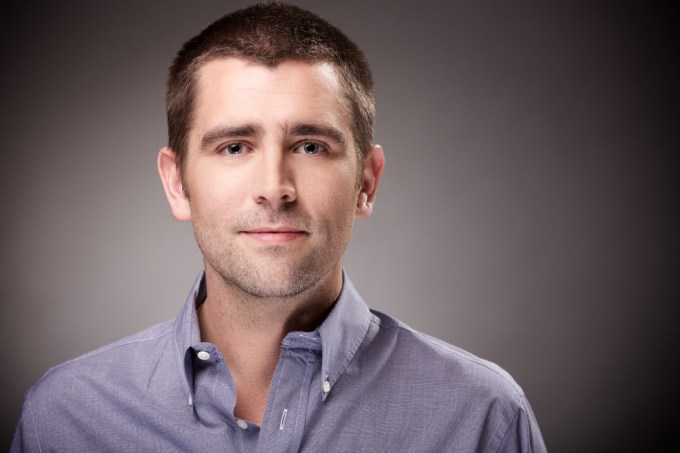The European Parliament has voted to pass a controversial reform of online copyright rules that critics contend will result in big tech platforms pre-filtering user generated content uploads.
The results of the final vote in the EU parliament were 348 in favor vs 274 against.
An amendment that would have thrown out the most controversial component of the copyright reform — aka Article 13, which makes platforms liable for copyright infringements committed by their users — was rejected by just five votes.
In an earlier vote last fall the EU Parliament also backed the copyright reform proposal, passing negotiations to the EU Council. Months of closed door negotiations followed between representatives of EU Member States and institutions, in so called trilogue discussions, culminating in a final text being agreed last month — which was then handed back to parliament for its final vote today.
Tweaks to the reform agreed by Member States agreed during trilogue appear intended to address criticism that it imposes so-called ‘upload filters’ by default — instead requiring larger platforms to obtain licences for certain types of protected content ahead of time. Though critics still aren’t impressed.
Speaking out against the proposals in the parliament ahead of the vote, Pirate Party member and MEP Julia Reda, who is part of Group of the Greens/European Free Alliance in the EU parliament, highlighted the scale of popular protests against the copyright reform, saying 200,000 people attended demonstrations in the region this weekend and five million have signed a petition against the reform — claiming there has “never been such broad protest” against an EU directive.
She also accused of the parliament of “thoroughly ignoring” the popular protests and warned it risks convincing young people there’s no point in engaging with democratic protest.
“The most tragic thing about this process is a new generation who are voting in the European elections for the first time this year are learning a lesson: Your protests aren’t worth anything, politics will spread lies about you, and won’t care for factual arguments if geopolitical interests are at stake,” said Reda in an impassioned speech in parliament this afternoon ahead of the vote.
Her speech was interrupted several times by shouts from other MEPs disagreeing.
Freedom of expression vs creative industry
The copyright reform campaign has been massively polarized throughout, with one side claiming it means the end of the free Internet and the death of memes because it will result in all online uploads being pre-filtered; and the other accusing opponents they’re in the pay of tech giants which they accuse of freeloading and leaching off Europe’s creative industries by monetizing copyrighted content without paying for use.
Both sides have also accused each other of spreading disinformation to further their cause. There’s been zero love lost across this divide as lobbyists from the two sides have piled on (and on).
Another element of the reform, Article 11, is a proposal to extend digital copyright to cover the ledes of news stories — which aggregators such as Google News scrape and display.
Unsurprisingly that measure has strong support among European media giants like Axel Springer and critics of the reform accuse its architects of being in hock to the newspaper industry which hopes to benefit financially by being able to charge link aggregator platforms like Google for displaying its content in future.
In recent years a couple of individual EU member states have passed similar laws to extend copyright to news snippets — which led Google to pull Google News entirely from Spain, while in Germany publishers ended up providing their snippets for free. An EU-wide rule could change the dynamics, though.
It’s certainly a much bigger business decision for Google to pull the plug on Google News across the whole of Europe, rather than just in Spain. Though, equally, Google could just come up with a compliance workaround to evade the requirement to pay.
Less discussed elements of the reform include proposals around text and data mining (TDM), which have implications for AI research — including a mandatory copyright exceptions for TDM conducted for research purposes. Teaching and educational purposes are also exempt. But rightholders can opt out of having their works datamined by entities other than research organisations.
The European Commission’s VP for the Digital Single Market tweeted in support of the parliament’s vote today — dubbing it a “big step ahead” which he said will reduce fragmentation across the bloc.
But in a follow up tweet he sought to address concerns that the reform will chill freedom of expression online, writing: “I know there are lots of fears about what users can do or not – now we have clear guarantees for , teaching and online creativity. Member States must make full use of these safeguards in national law.”
In a press release following the parliament’s vote the Commission confirms the text will need to be formally endorsed by the Council of the European Union — which will take place via another vote in the coming weeks, so likely early next month.
Assuming the Council gives its thumbs up the final text will be been published on the Official Journal of the EU, and Member States will then have 24 months to transpose the rules into their national legislation. So the timetable for the copyright directive coming into force is likely 2021.
An accompanying Commission memo on the directive also seeks to address some of the criticisms, with the Commission claiming it “protects freedom of expression [and] sets strong safeguards for users, making clear that everywhere in Europe the use of existing works for purposes of quotation, criticism, review, caricature as well as parody are explicitly allowed”.
“This means that memes and similar parody creations can be used freely. The interests of the users are also preserved through effective mechanisms to swiftly contest any unjustified removal of their content by the platforms,” it adds, in what critics will surely dub cold comfort attempts to paper over the overarching chilling effect on expression from pushing content liability onto platforms.
In another section of the memo, the Commission also writes that the directive does not “impose uploading filters” — nor add any specific technology to recognise illegal content.
“Under the new rules, certain online platforms will be required to conclude licensing agreements with right holders — for example, music or film producers — for the use of music, videos or other copyright protected content. If licences are not concluded, these platforms will have to make their best efforts to ensure that content not authorised by the right holders is not available on their website. The “best effort” obligation does not prescribe any specific means or technology,” it writes.
Though, again, critics argue that will simply translate into upload filters in practice anyway — as platforms will be encouraged to “over-comply” with the rules to “stay on the safe side”, as Reda tells it.
Also critical of the reform, former MEP Catherine Stihler, who’s now CEO of an open data advocacy not-for-profit, called the Open Knowledge Foundation.
In a reaction statement she dubbed the vote “a massive blow for every internet user in Europe”. “We now risk the creation of a more closed society at the very time we should be using digital advances to build a more open world where knowledge creates power for the many, not the few,” she suggested.
Following the vote, Tal Niv, GitHub’s VP of law and policy, also took a critical but more nuanced position, writing: “We’re thankful that policymakers listened and excluded ‘open source software developing and sharing platforms’ from the potential requirement to implement upload filters, which would have made the software ecosystem more fragile. However, the Directive that passed still contains challenges for developers.”
“Anyone developing a platform with EU users that involves sharing links or content faces great uncertainty. The ramifications include being unable to develop features that web users currently expect, and having to implement very expensive and inaccurate automated filtering. On the other hand, inclusion of a mandatory copyright exception for text and data mining in the Directive is welcome, and puts EU developers on a more even playing field relative to their US peers in the development of machine learning and artificial intelligence; looking ahead it will be crucial for member states to implement this exception in a consistent fashion.”
The Computer & Communications Industry Association reacted with disappointment too, warning in a statement that Article 13 undermines the legality of the social and sharing tools and websites that Europeans use every day and saying the reform falls short of “a balanced and modern framework for copyright” despite citing some “recent improvements”.
“We fear it will harm online innovation and restrict online freedoms in Europe. We urge Member States to thoroughly assess and try to minimize the consequences of the text when implementing it,” added Maud Sacquet, CCIA Europe’s senior policy manager.
Monique Goyens, director general of The European Consumer Organisation, BEUC, also described it as a “very unbalanced copyright law”.
“Despite the warnings and concerns of academics, privacy bodies, UN representatives and hundreds of thousands of consumers across Europe, the European Parliament has given its go-ahead to a very unbalanced copyright law. Consumers will have to bear the consequences of this decision,” she warned.
On the flip side professional content creators were jubilant.
“Through this historic vote, a message was sent by Europe to the world, in favour of culture, creation, authors, artists and journalists, and their right to fair remuneration in the digital world,” wrote the Society of Authors, Composers and Publishers of Music in a wordy statement that goes into detail in an attempt to rebut specific various laid charges against the reform. (Such as pointing out that the final text of Article 13 includes an exception for startups — “whose growth will be promoted by clarifying their situation for the use of content protected by authors’ rights”, it suggests.)
“This vote was an act of European sovereignty and a victory for democracy, because it was possible despite one of the most violent campaigns of lobbying and disinformation in the history of the European Union, on the part of those who wanted at all costs to avoid adopting a balanced text,” it added.
In an analysis following the vote law firm Linklaters’ Kathy Berry suggests the controversy and polarization around the copyright reform debate is part of a broader “Hollywood v Silicon Valley” tension — between “content creators that want a high level of copyright protection based on traditional models, and the tech industry that wants to clear the path for new and innovative ways to use and share content”.
“While Article 13 may have noble aims, in its current it functions as little more than a set of ideals, with very little guidance on exactly which service providers will be caught by it or what steps will be sufficient to comply,” she writes delving into the implications for big tech. “This is likely to result in an ongoing lack of legal and commercial certainty until the scope of the Directive is fleshed out by either the Commission’s proposed guidance or by European jurisprudence.”
On Article 11 extending copyright to news snippets Berry says the final version of the text is “much watered down” — noting that it excludes both hyperlinks and “very short extracts” of publications — going on to suggest it’s “unlikely to have any significant impact on news aggregators like Google News after all”.
from TechCrunch https://ift.tt/2HU3ge3
via
IFTTT



